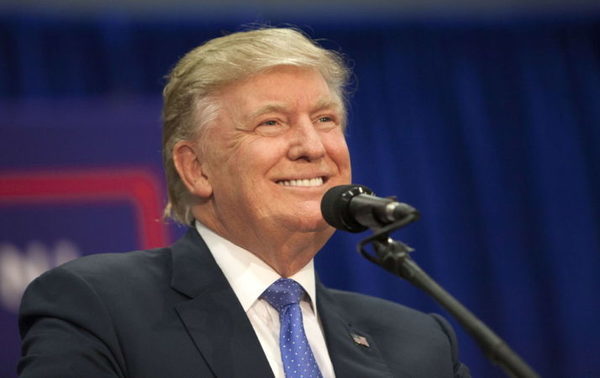USA: The four promises of Donald Trump that threaten the economies of sub-Saharan Africa

 Trump also promised to restart major infrastructure projects and rebuild America “to restore it to greatness.” This project includes for Africa, threats and opportunities. The good news is that these projects require significant resources steel (iron) or copper for cable installations. So this could boost demand for these minerals, and with prices allow countries such as Zambia and the DRC to reconnect with better export earnings.
Trump also promised to restart major infrastructure projects and rebuild America “to restore it to greatness.” This project includes for Africa, threats and opportunities. The good news is that these projects require significant resources steel (iron) or copper for cable installations. So this could boost demand for these minerals, and with prices allow countries such as Zambia and the DRC to reconnect with better export earnings.
USA: The four promises of Donald Trump that threaten the economies of sub-Saharan Africa 4:58 p.m. – 18/11/16
Following the election of Donald Trump, global markets panicked by plunging to record levels before recover slowly in the days that followed the speech rhythm changes from the new US president. For Africa, it is still uncertain as to its direct economic strategy with the mainland. But indirectly, the future president of the United States has made campaign promises, which are presented as threats to sub-Saharan African economies.
1) Challenging the Power Africa program
The first risk is that of deconstructing project nurtured by the Obama administration as part of its economic forum US-Africa Business Summit. It is not certain that Bloomberg Philanthropies who supported the initiative, can convince Trump and his team to continue this momentum. Many projects, especially in the energy sector, are therefore likely to stop short if current levels. A total of $ 21 billion of investment commitments was still obtained through these meetings.
2) relocation of US industries
Another promise made during his campaign was that of reducing Chinese imports in the US and forcing US companies to repatriate their production bases to find lost by American workers jobs. The direct consequence of the application of such a decision would be slower great Chinese factory, more so if, following the USA, Europeans also adopted a logic of protectionism. This naturally lead to a drop in Chinese demand for raw materials. Besides lower commodity prices, which would further reduce a little the income of sub-Saharan countries, would arise the problem of African debt to China, often guaranteed by mineral resources reserves. In recent years, the Middle Kingdom traded with Africa a little debt. In such a scenario, it could have to manage default with partners.
3) The relaunch of major infrastructure projects in the US
Moreover Trump promised to restart major infrastructure projects and rebuild America “for restore it to greatness. ” This project includes for Africa, threats and opportunities. The good news is that these projects require significant resources steel (iron) or copper for cable installations. So this could boost demand for these minerals, and with prices allow countries such as Zambia and the DRC to reconnect with better export earnings.
However, the opposite effect is perverse. Analysts said that to effectively implement this project, the US government will not only pay higher salaries but also widen the budget deficit. In both cases the direct result will be a surge of inflation in the US, which should logically compel conservative policies from the Federal Reserve. Its president Janet Yellen has already announced soon, the end of monetary policy softening due to lower unemployment in the US. In simple term, the dollar will start rising, resulting in further deterioration of purchasing power in sub-Saharan Africa where few integrated economies, have turned to the consumption of imported goods and services.
The end of the Obama era is already marked by a scarcity of external foreign exchange for some countries, which translates into economic growth contractions. Even where growth is robust, it is to the detriment of a balance of payments deficit sharply.
4) The development of US fossil fuel
Finally, unlike Obama, Trump has always shown his skepticism regarding changes climate. He promised to revive the deregulation of oil and gas sectors in the USA. An orientation that is reinforced by its intention to wall with Mexico and denounce free trade treaties that bind the North American country. In this context, the Mexican oil would lose an important market and would boost world supply. That Venezuela will become a new competitor, and African sales that boost the volume of transactions in the framework of the African Growth Opportunities Act (AGOA) will decrease. Collateral damage experienced by countries such as Nigeria, Angola and Mozambique are likely to increase, with risk of socio-political instability.







